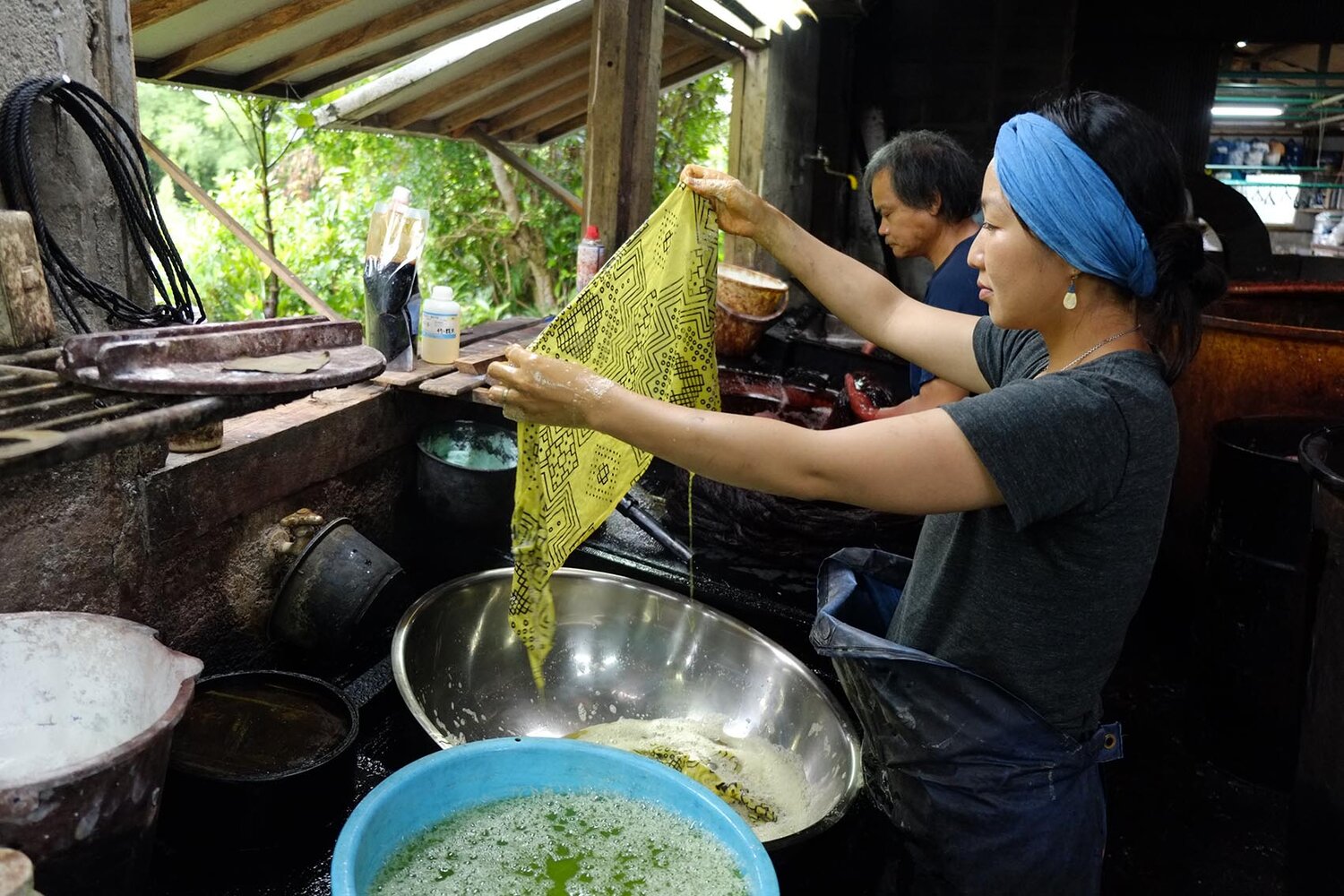
Lecture - The Evolution of Craftspersonship on Amami Ōshima Island
- 16 September 2021
- 18:00 (BST)
- Norwich Cathedral Hostry & Online
- https://www.sainsbury-institute.org/info/ttl-evolution-of-craftsperson-ship
- sisjac@sainsbury-institute.org
- Tweet
About the Talk
This event can be attended in-person or on Zoom. The lecture will last 50 minutes followed by a Q&A. Places are free but booking ahead is essential; please go to the event page for booking details.
Based on twelve months of ethnographic fieldwork on the island of Amami Ōshima, this talk discusses the changing role of the craftsperson in contemporary Japan. The quality and historicity of Japanese craft is world renowned, while craft work is a profession that garners cross-societal respect. Yet in order to sustain the future of their work a new generation of Japanese craftpeople are needing to significantly adapt traditional practice to account for changing market conditions, environmental and economic pressures, and social expectations. This talk offers the case study of Amami, where Linton carried out research at a traditional textile dyeing workshop celebrated for using dorozome (mud-dyeing) to colour the yarns of the luxury local kimono cloth Oshima Tsumugi. Using design and apprenticeship methodologies, Linton worked with the new generation of makers at this workshop, who offer a second branch to the business through the dyeing of contemporary clothing and textiles for the designer market. Her research offers unique insight into the opportunities, successes, challenges and conflicts that the craftspeople face as they embrace a diversity of roles in order to sustain cultural traditions, but also the future of local economic and social networks.
About the Speaker
Charlotte Linton is an anthropologist and designer whose work is situated at the intersection of visual, material and economic anthropology, Japanese Studies and ethnoecology. She is particularly interested in the relationships that craftspeople have with the environments from which they extract and use resources during the production of handcrafted commodities, and how these relationships sustain local social, environmental and economic networks. She received a DPhil in Anthropology from the University of Oxford in 2021 with a thesis based on twelve months of ethnographic fieldwork discussed in this talk. Using visual, design and participant apprenticeship methodologies, Charlotte’s research uses skills developed during her education and career as a fashion and textile designer to question the sustainability ideologies prevalent in the contemporary design world and their efficacy in small scale manufacturing settings. At the Sainsbury Institute, Charlotte will be working on a monograph and number of journal articles based on her DPhil thesis.
